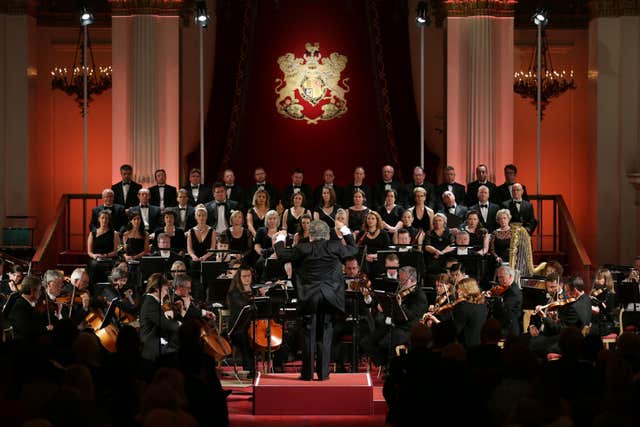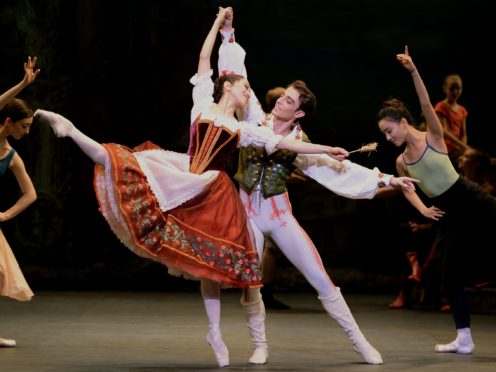Arts Council England will “pressure” organisations to reveal data on the sexuality of their staff in a drive for diversity.
Institutions including the Royal Shakespeare Company and the English National Ballet are required to adhere to diversity targets in order to receive their funding.
Arts Council England demands information on the ethnicity, age, gender, and sexual orientation of staff from organisations they fund in order for them to be assessed and rated.
But often this data is not provided, with organisations giving an answer of “unknown” or staff themselves saying they “prefer not to answer”, particularly when quizzed on sexuality.
Arts Council England, which plans to invest £1.45 billion in public funding in the coming years, has said it will apply pressure to gain the information on sexual orientation, having followed advice from LGBT charity Stonewall to make data gathering a priority.
Pressure to provide data has been branded “unacceptable” by privacy campaigners.
As their an annual report on diversity was published today, the Arts Council said: “While the report shows that fewer people are now responding to questions with ‘prefer not to say’, many organisations still return a high level of ‘unknown’ responses, showing they hold no data about an individual.
“This is especially true of sexual orientation.
“In future, we will put pressure on organisations which consistently report high levels of ‘unknown’ data, reminding them of their obligations under their funding agreements.”
Arts Council England insists that organisations within its portfolio “are required to integrate diversity into all areas of their work as a condition of their funding”, and seeks to monitor this diversity through annual surveys and a ratings system.
In the most recent survey of organisations in the Arts Council England portfolio in 2017/18, the sexuality of staff was 58% unknown, and 9% of employees preferred not to say.
In major partner museums, 62% of staff did not have their sexuality recorded, and 11% preferred not to reveal it.
Institutions such as the Royal Shakespeare Company and the Welsh National Opera, 100% of staff preferred not to give personal information on their sexuality.
The London Symphony Orchestra and the English National Ballet said gave an answer of 100% “unknown” when surveyed on sexuality.
Arts Council England wish to fill in the data gap, but privacy campaigners have voiced concerns over the means of gaining information through pressure from those holding the purse strings of organisations.
A spokeswoman for campaign group Privacy International told the Press Association: “It is unacceptable to pressure employees to provide such personal and private information.
“Staff should be clearly told that providing information about their sexual orientation is not required and that refusing to provide this information is completely acceptable, both by the organisation and its funders.”

In the documents offering guidance for its annual surveys, the Arts Council informs employers it funds that there is no legal obligation to collect information on sexual orientation, but that LGBT charity Stonewall recommends it.
Guidance states: “We’ve asked for a breakdown of the sexual orientation of both paid and voluntary staff.
“Whilst there is no legal obligation for you to collect this data, it is in line with best practice guidance, as published by the charity Stonewall.”
The charity itself said data gathering is common practice and is important for the needs of LGBT staff.
A spokeswoman for Stonewall said: “In the UK, capturing LGBT data is common practice and helps employers meet their legal equality duties. Equalities monitoring is vital for gathering evidence on and understanding the needs of LGBT employees.
Today marks the beginning of #LGBTHM19, a month-long celebration of our community's rich history and traditions. We'll be sharing our staff’s favourite LGBT heroes throughout the month! Take this chance to also learn about key dates for LGBT equality: https://t.co/IkRRQPm29F pic.twitter.com/gNUYA0YXYz
— Stonewall (@stonewalluk) February 1, 2019
“For data monitoring exercises to be effective, it’s absolutely crucial for everyone who is being asked to understand why this information is being collected and how this data will be used.”
Arts Council England is a non-government body of the Department Of Digital Culture Media And Sport, responsible for promoting the arts through public and National Lottery funding.
Between 2018 and 2022, it has plans to invest £1.45 billion of public money from government, and around £860 million in Lottery funding.
